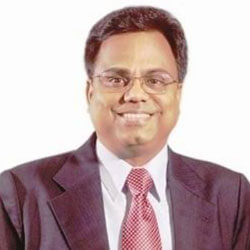
Would you like to start a conversation with other industry leaders to brainstorm a challenge or to just know more on a particular topic?
Engage in online discussions with your Peers
Start NowIt is natural that any organization focuses its energies initially towards business development and execution – their primary purpose of existence. Perfecting Product development, Manufacturing processes, Quality management and Delivery management is key to their growth strategy. But a stage comes in the life of every organization when the leaders start feeling they are not moving as fast as the environment is changing.
This means that various wings of the organization do not come together at the same time to solve a problem or cash-in an opportunity. It is a sure sign that their business processes governing support services and infrastructure processes need a relook. Almost all businesses that have experienced a rapid growth and/or expansion of portfolio or geographies feel this syndrome. Business Process Transformation is, thus an attempt to make the organization to shed sluggishness, find a rhythm and feel the vibrancy.
Functions are Interdependent too
The support processes include employee engagement, accounting and controls, management of finance and cash flow, purchasing, inventory management and spend management. Speed of fulfilment processes is generally influenced by customer expectations. Hence a sense of urgency is created when the market demands vary. But support processes do not follow the same cycle times or seasonality as the core processes.
A structured BPM strategy precisely attempts to inject life into
these often neglected, but all-important areas of business.
Hence there’s a need to orchestrate them. Sequencing, Prioritizing, setting Turnaround Time and Service Level Agreements, creating Dependencies etc., make these processes self-directed. A structured BPM strategy precisely attempts to inject life into these often neglected, but all-important areas of business.
These interdependent services are normally run by independent functions namely, HR, Finance and SCM. Due to lack of orchestration or excessive inter departmental controls natural flow of processes is hampered. Such structure is akin to having a functional layout of machines, grouped together by type for expert handling, in manufacturing industries.
It is well known that when a streamlined output is expected, organizations set up assembly lines as per process layout where all types of machines coexist. In our context, to speed up these processes without losing control, BPM strategy chooses to mix skill sets from HR, Finance and SCM to create a process-flow based organizational set up. For example, bill passing, and payment enablement process could have an assembly line of human beings from Finance and SCM Functions.
Or training administration can have people from HR as well as Functions. Since the focus is on the outcome, this BPM methodology is efficient and effective.
Creating Shared Services...
While adopting a mixed-skill and process based organizational structure, it must be ensured that the necessary functional expertise for execution is inbuilt in those individuals. Parent functions must still be responsible for policies, compliances and employee development. Improvements in automation levels and advancements in information technology have made the task of parent functions easier to lend their resources to this alignment, but still keep control on the outcome even remotely. Many organizations have reaped rich dividends by moving these process-based teams into a new organizational unit known as centre for Shared Services. This unit then caters to all business units and different geographies from one single location.
An independent, multi-skilled manager generally leads Shared Services with focus on process outcome. Meeting customer expectations, internal and external is this manager’s prime responsibility. They have been able to re-engineer processes for speed, accuracy and compliance; align workforce to demand variations; employ technology tools for job assignments and workflow monitoring & controls; encourage continuous improvements by adapting to Kaizen culture; establish customer centric KPIs and SLAs; device equitable reward and recognition schemes for employee motivation; run multiple shifts to milk assets deployed. These units will soon evolve into Centre of Excellence in the respective arena and support Knowledge Management initiatives as well.
...and then outsourcing it
Such an independent Shared Services Centre can even be outsourced to a third party for better governance and controls. This enables an outside-in view of the process design for benchmarking and bringing in best practices. Cross-pollination of ideas and process innovation enhance quality of outcome. Conversely, some organizations instead of outsourcing, have transformed this Shared Services unit as an independent company taking on jobs from other needy organizations. A well-managed Shared Services unit thus can become a profit centre.
In summary
BPM strategy for Services and support processes can make an organization agile, compact, competent and also a source of fresh revenue and profits.
ABOUT THE AUTHOR

S Asokan is Executive Director Supply Chain, Bharti Airtel and is a member of the Bharti Airtel management board. He oversees a purchasing spend of over US$ 5 Billion, with responsibility for building strategic partner alliances, partner relations, global sourcing, product & service supply chain, process transformation and real estate infrastructure creation & management.
Asokan joined Bharti Airtel in 2006 and under his leadership the procurement function at Bharti Airtel transformed from a commercial buying unit into a full-fledged global supply chain organization. He has successfully led many productivity and process improvement initiatives including creation of a Shared Services Organization, known as ACE – Airtel Center of Excellence, which performs routine & repetitive basic supply chain tasks for all operational units of Bharti Airtel. He also drives key initiatives of global synergy, cost efficiency, innovative commercial modeling and partner governance.
Previously, Asokan was Executive Vice President of Tata Autocomp Systems, where he was spearheading auto component exports from India and was also responsible for Engineering Services business. As member of the Board of some of the Tata Group companies, he played a key role in improving efficiencies, business growth while enhancing governance.
Asokan also worked with Eicher Group of companies, where, in his tenure of over 17 years, he worked in various functions including Materials, Marketing and IT. Here he was instrumental in the success of business critical initiatives of global sourcing, cost optimization, operational efficiency, ancillarization & new product development. In all, his career spans over 32 years including a stint with Bharat Heavy Electricals in the formative years.
Asokan is an Honours graduate in Mechanical Engineering from Madurai University and a member of Cost and Works Accountants of India. He also attended leadership training programs from Ross School of Business Management, Michigan University.




